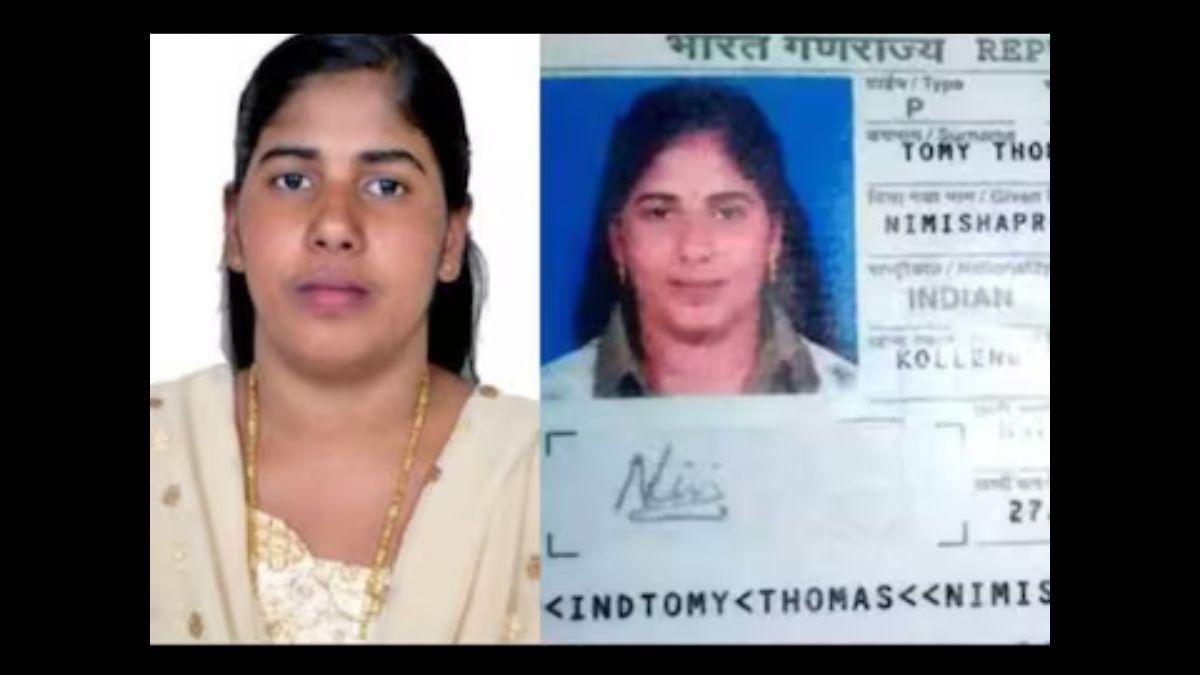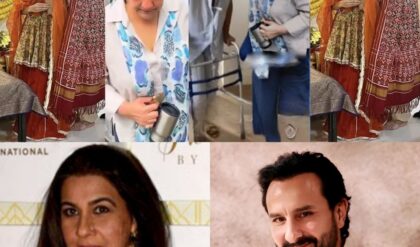All efforts are on to save Nimisha Priya, an Indian nurse who has been sentenced to death in Yemen in a murder case. The family of the 36-year-old is trying to prevent her execution by offering a ‘diyya’, an Islamic Sharia law concept often referred to as ‘blood money’. What does it mean?
)
Nimisha Priya’s family trying to negotiate her release through ‘diyya,’ an Islamic Sharia law concept often referred to as ‘blood money’. News18 Malyalam
Nimisha Priya, an Indian nurse from Kerala, is facing a grim fate in Yemen after she was awarded the death penalty in the country. Recently, President Rashad al-Alimi gave a nod to the death sentence of the 36-year-old for allegedly murdering a Yemeni national.
The sentence, which could be carried out within a month, has sent shockwaves through her family and the Indian government.
The Ministry of External Affairs stated on Tuesday that the Indian government is “extending all possible help in the matter.” Meanwhile, her family is leaving no stone unturned, exploring every legal option available to save her life.
One such option being considered is ‘diyya,’ an Islamic Sharia law concept often referred to as ‘blood money’.
But what exactly is ‘blood money,’ and how might it work in this case? Here’s an in-depth look.
First, who is Nimisha Priya? What is the case?
Nimisha Priya, a nurse from Kollengode in Kerala, began her medical career with aspirations for a brighter future, moving to Yemen in 2008 in search of better opportunities.
In 2011, she married Tomy Thomas in Kerala, and the couple soon relocated to Sana’a, the capital of Yemen, to build a new life together. While Priya worked as a nurse, Tomy found employment as an electrician.
Seeking to improve their financial situation, the couple decided to open their own clinic. However, since Yemen’s laws prohibited foreigners from registering businesses, they needed a local partner.
This is when they joined hands with Talal Abdo Mahdi, a frequent visitor to the clinic where Priya worked, to kickstart their new venture.
With time, he developed close ties with the family and even attended the baptism of Priya’s daughter in Kerala in 2015. While Priya returned earlier to Yemen, her husband and their daughter could not join her as a civil war broke out in the country.
This is when things went awry.
Betrayal and abuse
Upon Priya’s return to Yemen, Mahdi helped her open a clinic but he soon changed his attitude, and allegedly refused to share any of the profits with her, claimed Priya’s family.
Over time things became worse, her family said as Mahdi began harassing her under the influence of drugs, and extorted money from her clinic. He even threatened her at gunpoint and manipulated the clinic’s ownership documents to take full control.
Further, family members and legal representatives alleged that he seized her passport to prevent her from leaving Yemen and restricted her contact with her family in Kerala.
By 2017, Priya decided to retrieve her passport from Mahdi’s control to escape Yemen.
According to a News18 report, a prison warden, who was also her patient, as well as one who knew of her case as she had repeatedly reported to the local police of assault or threats by the Yemeni national, advised her to incapacitate Mahdi temporarily and retrieve her passport to flee back home.
Her first attempt failed as Mahdi’s substance abuse didn’t calm him down. On her second attempt, she used a stronger dose, which tragically led to his death from an overdose within minutes.
In a state of panic, she sought the help of a fellow Yemeni nurse, who allegedly suggested that they chop up the body and dispose of the parts in a water tank.
Though the two went into hiding, the police were able to catch them. They were charged with murder in 2017 and have been lodged in the Central prison in Sana’a.
Priya, who has been jailed since then only gets to talk to her daughter, then two years old, via video calls.
“Whenever Nimisha calls me, the first thing she asks about is our daughter. She asks how she’s doing, enquires about my health, and how we’re coping. She’s in jail and has no knowledge of what’s happening outside. But the first thing is always to know how our daughter is faring and how she wants to reunite as a family,” her husband told News18.
In 2018, a trial court in Sana’a sentenced Priya to death.
What is ‘blood money’?
While many countries, particularly democracies, have abolished the death penalty for murder and other crimes, it is still a part of the legal system in some countries governed by Islamic Sharia law.
However, the Sharia law also emphasises forgiveness and compensation to the sufferer’s loved ones. Under this system, the victim’s family has the right to decide the punishment for the offender. One option is forgiveness in exchange for monetary compensation known as ‘diyya,’ commonly referred to as ‘blood money.’
The Quran provides guidance on this matter, stating: “O believers! The law of retaliation is set for you in cases of murder—a free man for a free man, a slave for a slave, and a female for a female. But if the offender is pardoned by the victim’s guardian, then blood-money should be decided fairly and payment should be made courteously. This is a concession and a mercy from your Lord. But whoever transgresses after that will suffer a painful punishment” (Surah Al-Baqarah, verse 178).
While the Quran explains the concept, it does not set a fixed amount for blood money.
The amount is determined through negotiation between the families of the murderer and the victim, although some Islamic countries have set minimum compensation amounts.
How can this help in the case?
Priya’s family is attempting to stop the death penalty by negotiating with the victim’s family, offering “blood money” as part of the resolution.
“We are trying to get my wife back so that we can live as one family again… I strongly believe that the discussions will reach a point where we can discuss ‘diya’ or blood money. I am positive. I refuse to give up hope. My wife is a good human being,” her husband, a daily wage labourer and autorickshaw driver, told News18.
Earlier this year, the Indian government allocated $40,000 (over Rs 34 lakhs) in November 2023 to initiate talks for Nimisha Priya’s release, reported Indian Express. Eventually, her family may need to pay between $300,000 and $400,000 (Rs 2.57-3.43 crore) to prevent the death sentence.
International support has been crucial in their efforts to raise money through crowdfunding. The Save Nimisha Priya International Action Council, a group of NRI social workers in Yemen, has been actively involved. Activist Prema Kumari has been stationed in Sana’a since early 2024, working on negotiating the blood money payment.
However, the negotiations have faced setbacks. Now, with the involvement of Indian authorities, efforts are being made to secure forgiveness from Mahdi’s family and tribal leaders. If successful, Nimisha Priya’s life could be spared through a financial settlement.
With input from agencies





